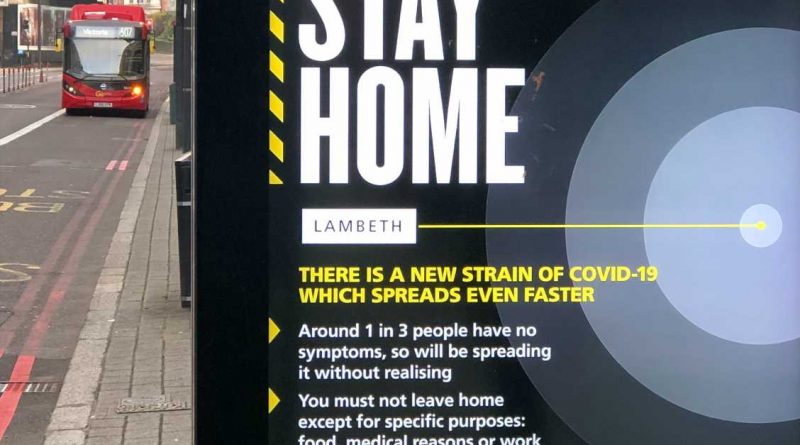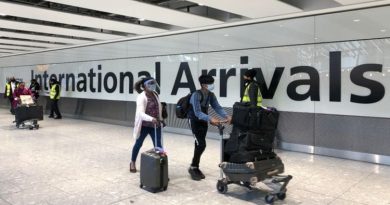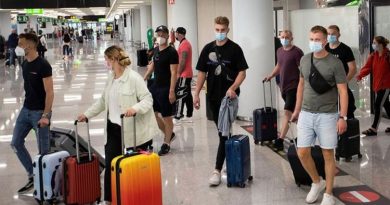What are the travel rules for home and abroad during the new lockdown?
The UK is entering another lockdown. In a bid to reduce the rate of new infections, severe restrictions have been imposed on travel and activities, similar to those that were in place nationwide last March.
While the four nations of the UK may have slight differences in timing and rules, the basic principles are very similar.
The move will have a massive impact on prospective holidaymakers, business travellers and the industry.
These are the key issues, starting with travel within the UK.
How far can I travel?
If you are working or have caring duties, as far as you need to. But for everyone else, travelling anywhere outside of your local area looks out of the question unless to shop for essentials or seek medical treatment.
People will only be allowed to leave home for exercise – a relaxing of the rules from the first lockdown – to go to work, or if they have caring duties.
Will trains and buses continue to run?
Many of them will do so, as the government continues to provide capacity for key workers to travel to and from their employment. The cost to the taxpayer of running almost entirely empty trains is around £30m per day, while a few million pounds more are spent on local bus services.
INDY/GO Weekly Newsletter
TIME TO TRAVEL!
Read our full mailing list consent terms here
INDY/GO Weekly Newsletter
TIME TO TRAVEL!
Read our full mailing list consent terms here
Grand Central and Hull Trains – open-access rail firms that run on the East Coast main line in competition with government-funded LNER – are likely to cease operations entirely.
During the first lockdown in March, the two main long-distance coach operators, National Express and Megabus, stopped operations entirely for several months.
Can I travel to a beauty spot for exercise?
Not unless it is within your local area. The rules stipulate that people should not travel outside their local areas to exercise.
I have a second home. Can I go there to sit out lockdown?
No.
Will there be a flight ban?
No. There have been calls for tougher border restrictions, including from the former health secretary, Jeremy Hunt. Many people have advocated testing prior to departure to the UK or on arrival, but these have been rubbished by ministers.
The government has insisted only quarantine of 10 days – with a five-day “opt out” if you test negative for coronavirus – will suffice.
Some targeted flight bans will be deployed, such as that currently in force against South Africa. Of course such measures are ineffective if passengers simply take alternative routes.
May I travel abroad?
As with those living in Tier 4 in England, only essential journeys are possible: for work, medical treatment or urgent compassionate reasons.
What happens to people on holiday right now?
Many travellers are abroad right now, enjoying the sunshine in Dubai, the Indian Ocean and the Portuguese island of Madeira.
They are almost certainly safer in those locations than they would be in the UK; they should be able to complete their holiday as planned and then travel back – going straight home from the airport. In some cases, travel firms may require them to leave early, for example if flights are being cold because of lack of customers that could mean they are told either you fly home now or you are on your own.
I have a holiday booked. What are my rights?
If you are booked on a proper package holiday through a company such as Tui or Jet2 from now until the end of lockdown, the trip is almost certainly going to be cancelled. Once it is, then you are entitled to a full refund within two weeks. For people who have booked flight-only deals,
Will scheduled airlines still fly?
Yes, but at greatly reduced scale.
In the spring lockdown of 2020, easyJet closed down completely for 11 weeks. Ryanair and British Airways retained a skeleton service of flights to provide essential connectivity.
What will this do to the travel industry?
The direct financial impact of another lockdown will actually be significantly less than it was in March, April and May 2020.
January is low season for the travel industry; apart from the February half term and some activity around Valentine’s Day (14 February), many travel companies sell at a loss in the first three months of the year.
The industry has already written off the winter sun market; the first half of the ski season has been wiped out, and the second half looks in peril.
However, the highly unwelcome news of the lockdown is going to knock consumer confidence even further.
January should also be the month in which travel companies make an awful lot of cash: taking bookings from people who need a dream to anticipate after Christmas and the New Year are over.
While a whole range of spring and summer holidays are on offer, the travel industry is selling a fraction of the normal number of holidays.
The term being used a great deal among travel businesses is that the they are experiencing the third winter in a row, and the deepest.
With every attempt by travel firms to restart at scale seemingly thwarted because of new government restrictions, businesses are increasingly calling for help which they say is desperately needed if the UK is going to have a half-decent travel industry left by the time the coronavirus crisis is over.
Tim Alderslade, chief executive of Airlines UK, said: “It’s vital that any lockdown is accompanied by measures to support our aviation sector.
“If we cannot re-open travel the future of UK aviation will be bleak indeed.”
Source: Read Full Article



